
Pelion: The Mythical Mountain of Centaurs
Nestled between the Aegean Sea and the Pagasetic Gulf, Pelion is a mountainous peninsula in Greece that offers a unique blend of natural beauty and rich mythology. According to Greek legends, Pelion was the home of the centaurs, half-human, half-horse creatures who roamed the lush forests and majestic peaks. Pelion is renowned for its picturesque villages, each with its own distinct character and charm. The cobblestone streets and traditional stone houses in villages like Makrinitsa and Portaria transport visitors back in time. These villages are perfect for leisurely strolls, giving you a chance to immerse yourself in local culture and hospitality. Nature lovers will find Pelion to be a paradise. The region is crisscrossed with hiking trails that offer stunning views of both the mountains and the sea. Whether you are hiking through dense forests, discovering hidden waterfalls, or walking along the sandy beaches, Pelion offers a diverse array of outdoor activities. The beaches of Agios Ioannis and Mylopotamos are particularly popular for their crystal-clear waters and scenic beauty. Pelion is also a culinary destination, known for its delicious local cuisine. Don't miss the chance to try traditional dishes such as 'spetsofai,' a spicy sausage and pepper stew, or 'galaktoboureko,' a creamy custard dessert wrapped in flaky pastry. Local tavernas and restaurants offer a genuine taste of Greek hospitality and culinary tradition. Whether you're seeking adventure, relaxation, or a dive into Greek mythology, Pelion has something for everyone. Its natural beauty, historical significance, and warm hospitality make it a must-visit destination in Greece.
Local tips in Pelion
- Visit in spring or autumn for mild weather and fewer tourists.
- Rent a car to explore the remote villages and hidden beaches at your own pace.
- Pack comfortable walking shoes for exploring cobblestone streets and hiking trails.
- Try to stay in traditional guesthouses for an authentic experience.
- Don’t miss the scenic Pelion Train ride from Milies to Ano Lechonia.
Pelion: The Mythical Mountain of Centaurs
Nestled between the Aegean Sea and the Pagasetic Gulf, Pelion is a mountainous peninsula in Greece that offers a unique blend of natural beauty and rich mythology. According to Greek legends, Pelion was the home of the centaurs, half-human, half-horse creatures who roamed the lush forests and majestic peaks. Pelion is renowned for its picturesque villages, each with its own distinct character and charm. The cobblestone streets and traditional stone houses in villages like Makrinitsa and Portaria transport visitors back in time. These villages are perfect for leisurely strolls, giving you a chance to immerse yourself in local culture and hospitality. Nature lovers will find Pelion to be a paradise. The region is crisscrossed with hiking trails that offer stunning views of both the mountains and the sea. Whether you are hiking through dense forests, discovering hidden waterfalls, or walking along the sandy beaches, Pelion offers a diverse array of outdoor activities. The beaches of Agios Ioannis and Mylopotamos are particularly popular for their crystal-clear waters and scenic beauty. Pelion is also a culinary destination, known for its delicious local cuisine. Don't miss the chance to try traditional dishes such as 'spetsofai,' a spicy sausage and pepper stew, or 'galaktoboureko,' a creamy custard dessert wrapped in flaky pastry. Local tavernas and restaurants offer a genuine taste of Greek hospitality and culinary tradition. Whether you're seeking adventure, relaxation, or a dive into Greek mythology, Pelion has something for everyone. Its natural beauty, historical significance, and warm hospitality make it a must-visit destination in Greece.
When is the best time to go to Pelion?
Iconic landmarks you can’t miss
Centaurs' path
Hike the Centaurs' Path in Volos: Where myth meets nature, offering stunning views and a tranquil escape into Greek legend and lush landscapes.
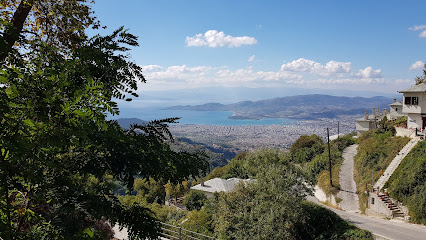
Pelion Ski Centre
Experience unique skiing with breathtaking views of the Pagasetic Gulf and Aegean Sea at Mount Pelion's popular ski resort.
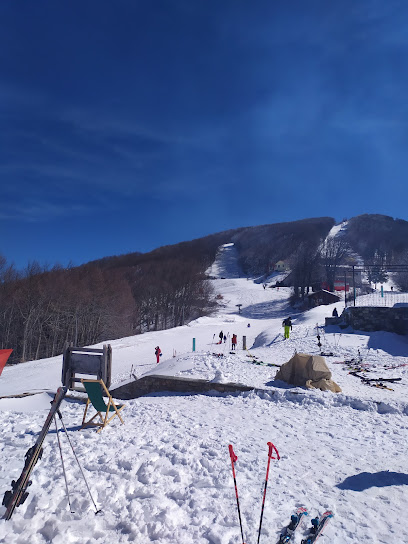
The Train of Pilio (Ano Lekhonia - Milies)
Journey through history and nature on the Train of Pilio, a vintage steam train experience in the scenic Pelion region of Greece.
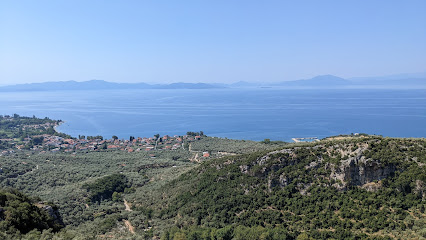
Spring Of Manas
Discover the serene beauty of Spring of Manas in Portaria, a perfect natural escape with crystal-clear waters and lush landscapes.
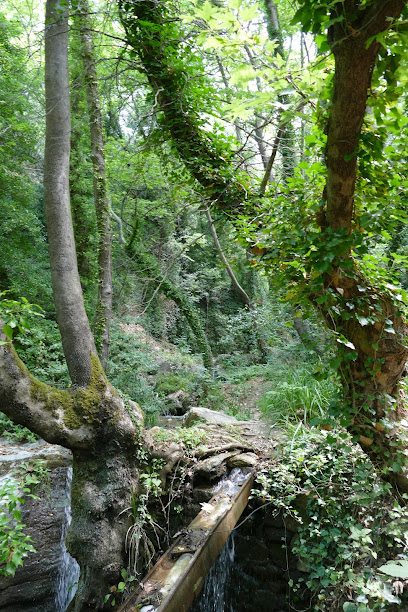
The Little Train of Pelion
Ride the historic Little Train of Pelion through stunning landscapes, connecting charming villages and offering breathtaking views of Greece.
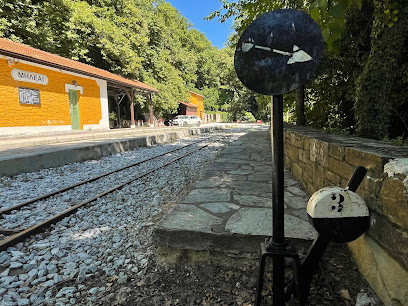
Pelion Activities
Explore Pelion's hidden Aegean coast with boat tours, sea caves, and authentic local experiences in Agios Ioannis.
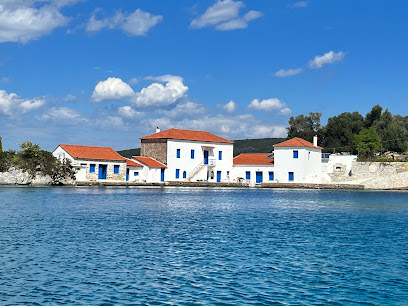
Sycamore of peace square
Experience the heart of Makrinitsa at Sycamore of Peace Square, a picturesque landmark with stunning views and a tranquil atmosphere.
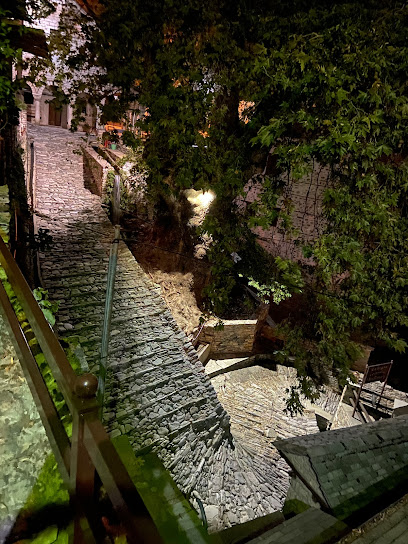
Pelion Cross of Jesus Observation Point
Discover breathtaking panoramic views from the Pelion Cross of Jesus Observation Point, a serene escape on the enchanting Pelion Peninsula.
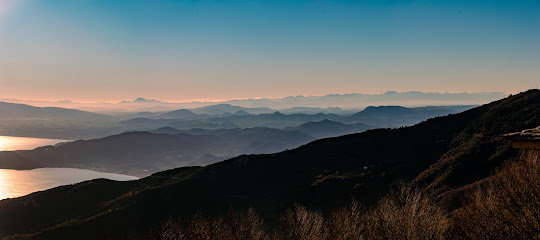
Unmissable attractions to see
Saint Konstantinos Park
Explore the lush greenery and historic monuments of Saint Konstantinos Park in Volos, a serene retreat for tourists and locals alike.
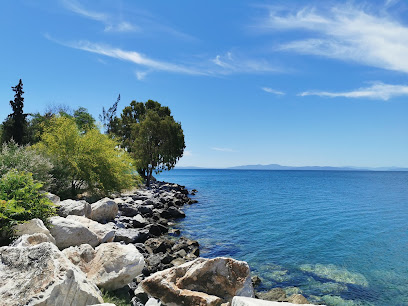
Manolas
Discover the charm of Ag. Kiriaki with fresh seafood and local flavors at Manolas – a culinary delight by the sea.
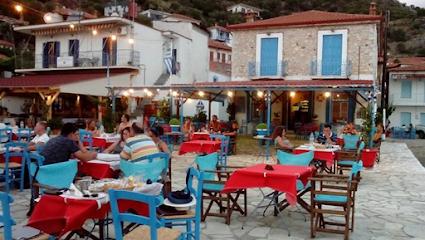
Home of Alexandros Papadiamantis
Discover the enchanting world of Alexandros Papadiamantis at his home in Skiathos, a heritage museum showcasing Greece's literary history.
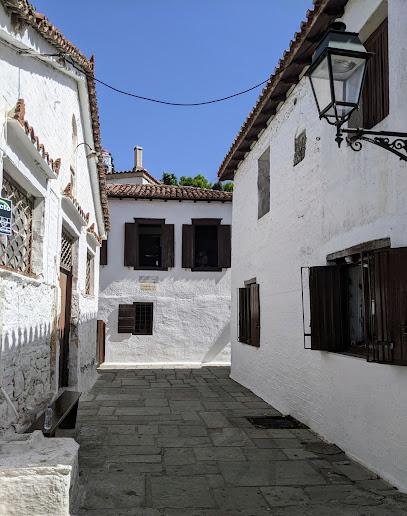
Limnionas Beach
Experience the tranquil beauty of Limnionas Beach, a hidden gem in Greece known for its crystal-clear waters and serene surroundings.

View point portaria
Discover the stunning landscapes and serene beauty of the Portaria Viewpoint, a must-visit destination for all tourists exploring Greece.
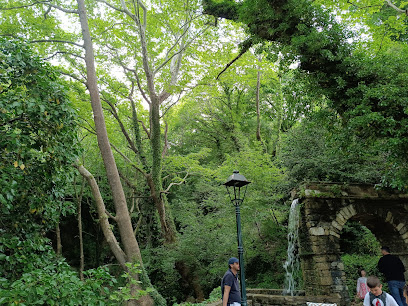
Clock Tower
Discover the historic Clock Tower of Skiathos, a captivating landmark offering stunning views and a glimpse into the island's rich heritage.

מפלים ובריכות שכשוך
Discover the stunning hiking trails of Zagora, Greece, where breathtaking views and rich natural beauty await every adventurer.
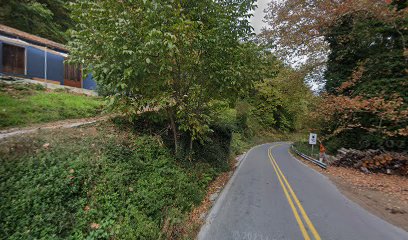
Essential places to dine
cardamo OINOMAGEIREIO
Experience authentic Greek cuisine in picturesque Makrinitsa at Cardamo Oinomageireio - where tradition meets taste.
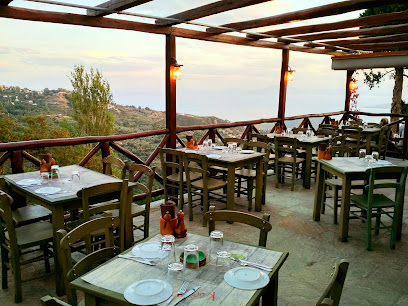
KRITSA Restaurant
Discover authentic Greek flavors at KRITSA Restaurant in Portaria - where tradition meets taste amidst breathtaking mountain views.
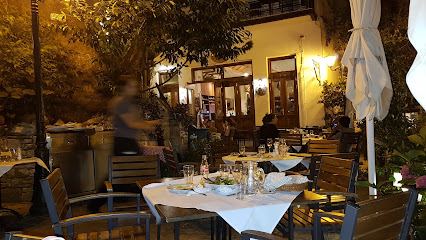
Synantisi
Experience authentic Greek cuisine at Synantisi in Kissos - where every dish tells a story.
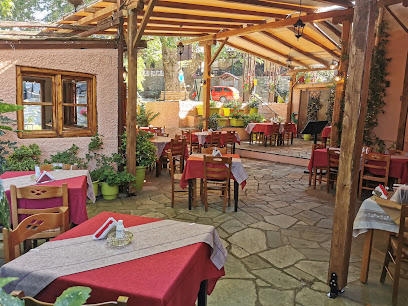
Meintani (Niki's Taverna)
Discover the flavors of Greece at Meintani (Niki's Taverna) in Zagora – where tradition meets taste!
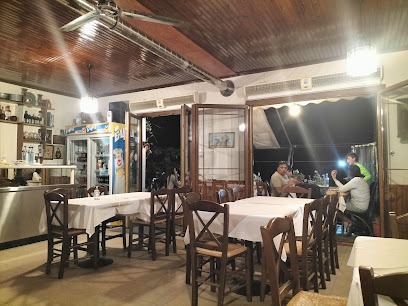
the Salkimi
Experience authentic Greek cuisine at Salkimi in Pelion—where traditional flavors meet warm hospitality.
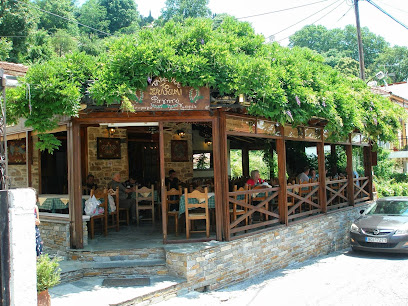
Tavern Pelion Geuseis Portaria
Experience the heart of Greek cuisine at Tavern Pelion Geuseis in Portaria - where every meal tells a story.
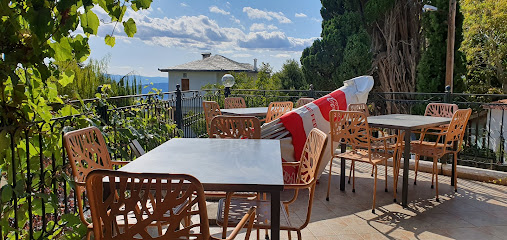
Ταβέρνα Πλυμάρι
Experience authentic Mediterranean dining at Ταβέρνα Πλυμάρι in Analipsi, where fresh seafood meets traditional Greek flavors.
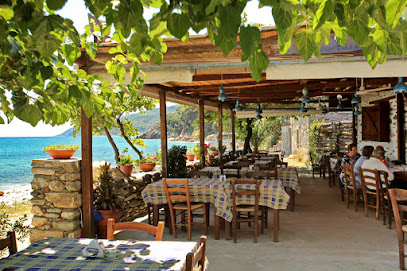
Loukoulos
Experience authentic Greek cuisine at Loukoulos in Chania – where every dish is a celebration of local flavors.
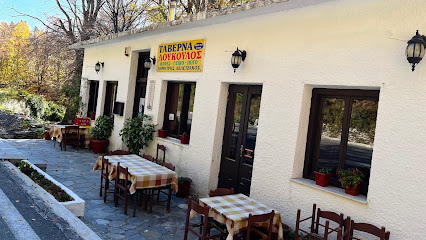
ΤΑΒΕΡΝΑ ΟΡΤΑΝΣΙΕΣ
Savor traditional Greek flavors at Taverna Ortansies in Katochori – a culinary gem offering fresh ingredients and warm hospitality.
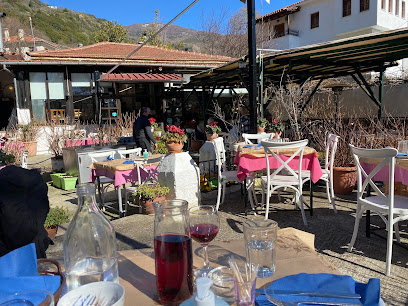
Me Mostra
Experience authentic Greek cuisine at Me Mostra in Portaria – where traditional flavors meet breathtaking views.
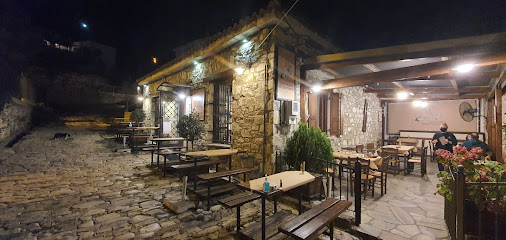
Agora 1955
Discover Agora 1955 in Portaria: Where traditional Greek flavors meet modern culinary artistry in an inviting atmosphere.
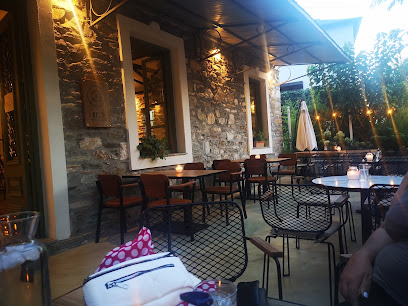
To Katofli tis Ketis
Experience authentic Greek cuisine at To Katofli tis Ketis in Katochori—where every dish tells a story.
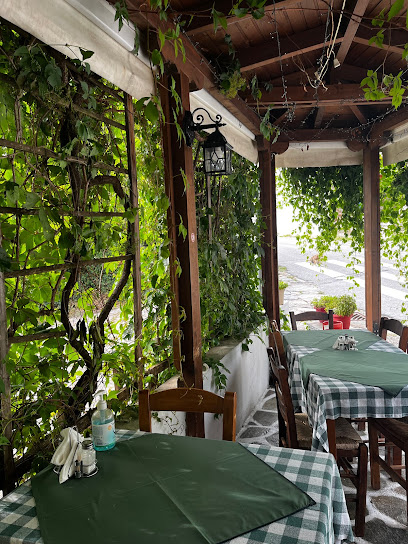
Υληεν - Ylien Cafe
Experience authentic Greek hospitality at Υληεν - Ylien Cafe in Zagora with delicious coffee, diverse cuisine, and stunning views.
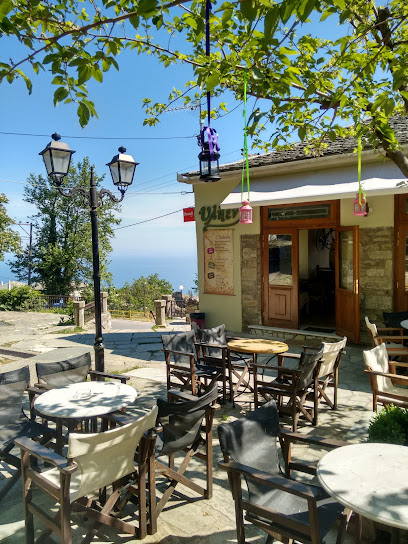
To Kima • Seaside Family Restaurant
Experience authentic Greek cuisine at To Kima, a charming seaside family restaurant offering fresh seafood and stunning views in Chorefto.
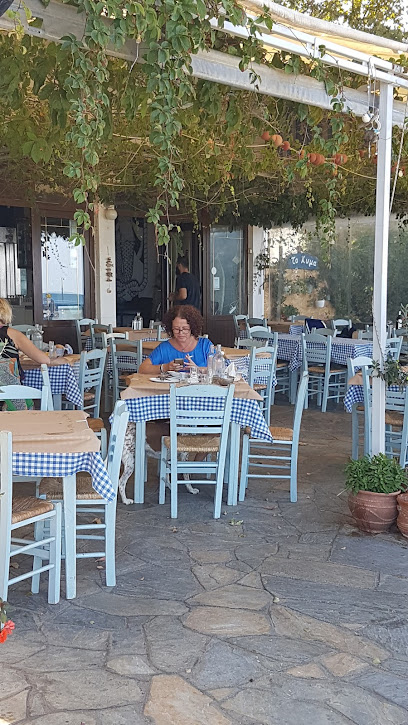
O Christos
Discover O Christos in Agios Ioannis for an authentic seafood experience blending fresh flavors with breathtaking views of the Aegean Sea.
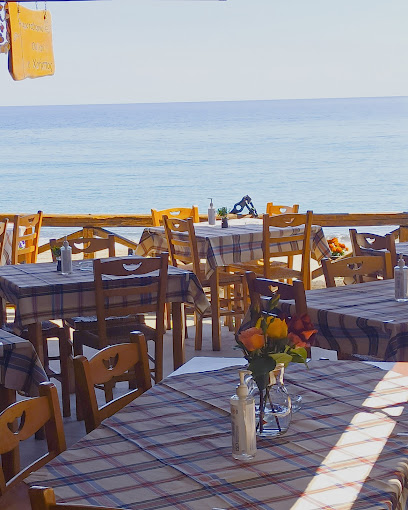
Markets, malls and hidden boutiques
Flying Tiger Copenhagen
Discover a world of unique gifts and quirky treasures at Flying Tiger Copenhagen in Volos, where creativity meets fun in every aisle.
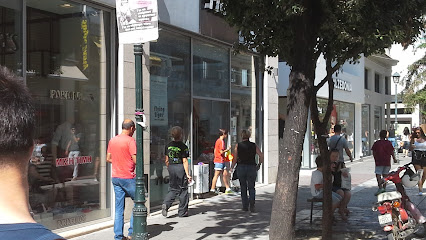
IQOS BOUTIQUE STORE ΒΟΛΟΣ
Explore the IQOS Boutique Store in Volos for a modern tobacco shopping experience with innovative smoke-free products and expert advice.
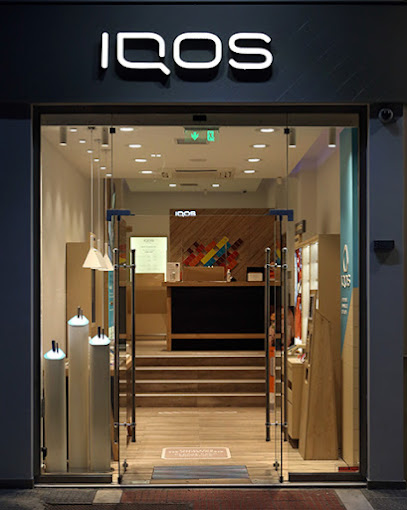
Καλειδοσκόπιο Είδη Λαϊκής Τέχνης ΓΚΑΝΤΙΝΑΣ ΒΑΪΟΣ Μακρινιτσα
Explore the artistic treasures of Καλειδοσκόπιο in Makrinitsa, a vibrant art gallery and supply store celebrating local craftsmanship and creativity.
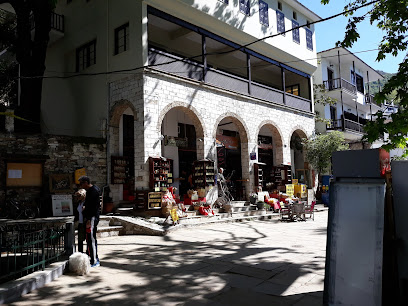
Το χρυσό μήλο
Delve into a vibrant shopping experience at Το χρυσό μήλο in Portaria, Greece, where local culture meets modern retail therapy.
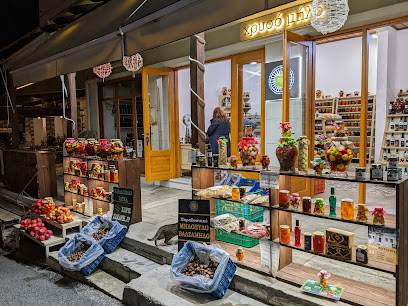
Γη Ανατολής
Explore Γη Ανατολής in Zagora for unique gifts and local crafts that reflect the rich culture of Greece.
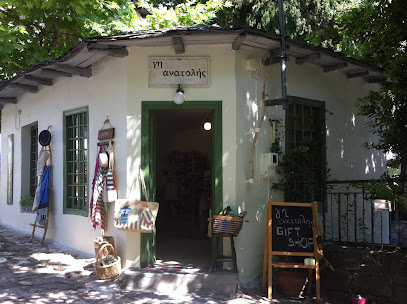
The Shop Of Nature
Explore organic treasures at The Shop of Nature in Makrinitsa, where local craftsmanship meets stunning mountain views.
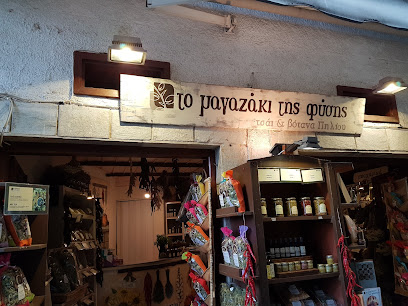
Botanothḗkē
Experience the healing power of nature at Botanothḗkē, a charming herbal medicine store in Makrinitsa, Greece.
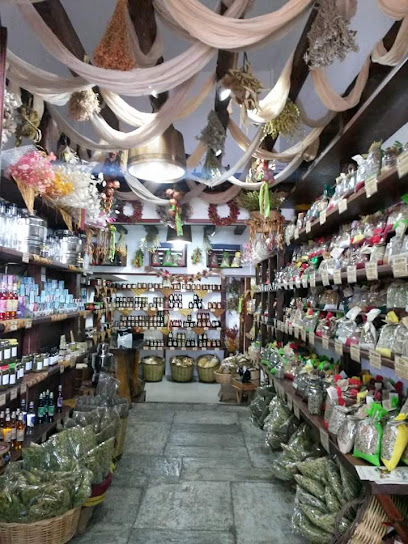
Peritechno
Explore the enchanting Peritechno in Makrinitsa, where unique gifts and local treasures await in a whimsical setting.
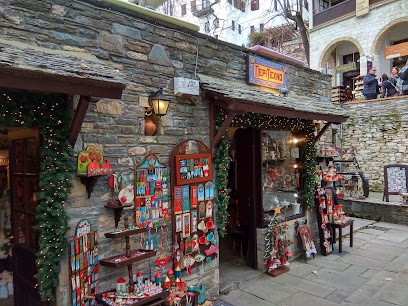
e-katsonis DIY
Explore e-katsonis DIY in Zagora, a charming shopping mall offering a wide range of DIY supplies and local crafts for every creative soul.
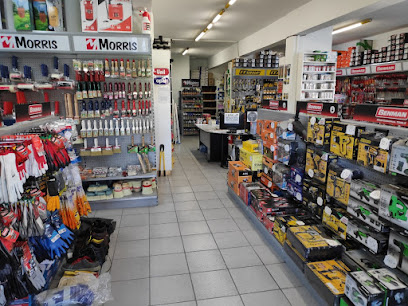
purple bike
Explore the charm of Agios Ioannis with unique gifts and local treasures at Purple Bike, a must-visit gift shop for every traveler.
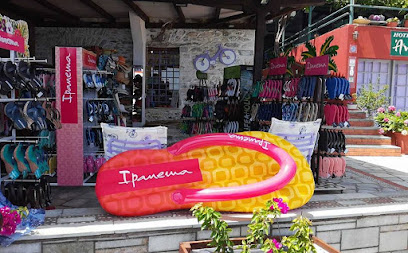
Γυναικεία ενδύματα αξεσουάρ Βόλος Queen BOUTIQUE
Explore the charm of Queen Boutique in Volos for an unforgettable women's fashion shopping experience featuring trendy and elegant styles.
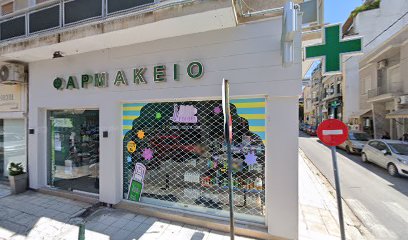
Κατάστημα χαρτικών Pasios
Discover unique home goods and local crafts at Κατάστημα χαρτικών Pasios in Volos, Greece—your destination for authentic souvenirs.
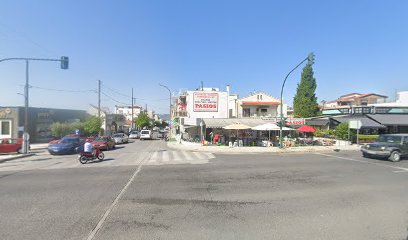
Apéritto
Discover unique gifts and local crafts at Apéritto in Portaria, a must-visit shop for tourists seeking authentic Greek souvenirs.
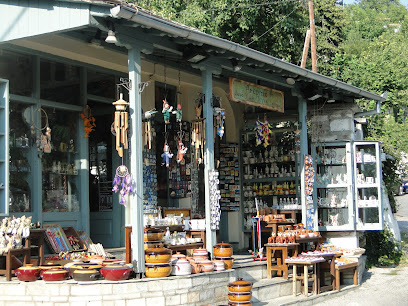
Íris
Explore Íris in Portaria for unique gifts and local treasures that capture the essence of Greek craftsmanship and culture.
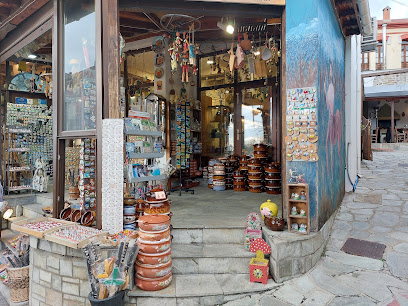
Doralia Αρχιπελαγος
Explore the charm of Agios Ioannis at Doralia Αρχιπελαγος, where unique gifts and local crafts await every traveler.
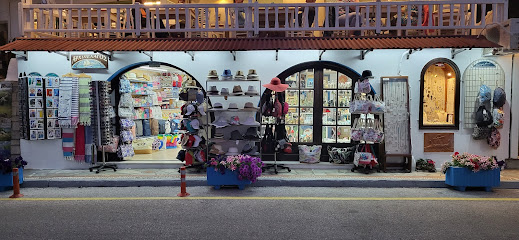
Essential bars & hidden hideouts
Grooove
Experience the vibrant nightlife of Volos at Grooove, a stylish bar offering unique cocktails and a lively atmosphere until the early morning hours.
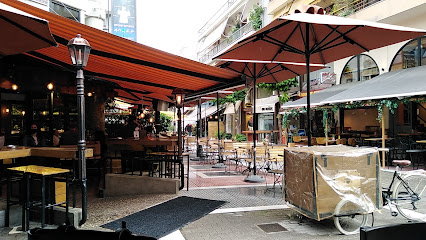
Grappa Vino & Aperitivo
Discover Grappa Vino & Aperitivo in Volos: a delightful wine bar offering exquisite local wines and appetizing dishes in a warm, inviting setting.
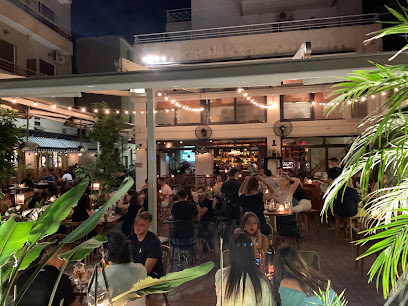
Meintani (Niki's Taverna)
Discover the heart of Greek cuisine at Meintani (Niki's Taverna) in Zagora, where tradition meets taste in a picturesque setting.
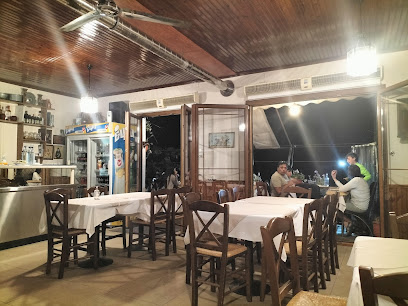
the Salkimi
Experience the authentic flavors of Greece at Salkimi, a culinary treasure in Pelion, where every dish tells a story.
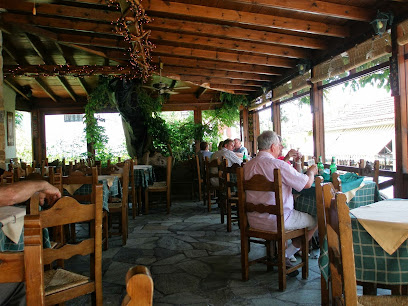
ΑΠΑΛΟΥ bistrot
Discover the culinary delights of Greece at ΑΠΑΛΟΥ Bistrot in Tsagkarada, where tradition meets modern flavors in a cozy atmosphere.
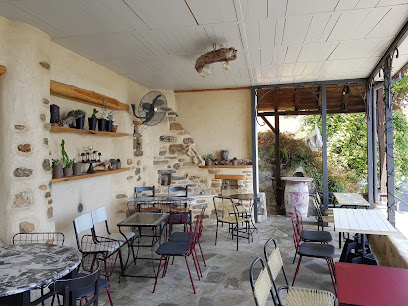
Red Nose Bar
Experience the vibrant nightlife and delectable brunches at Red Nose Bar in Volos, Greece - your go-to destination for cocktails and fun.
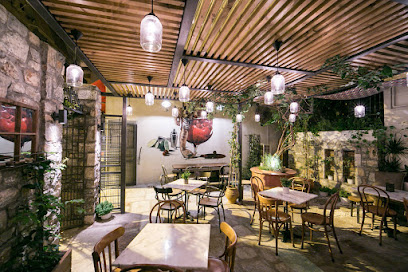
Agora 1955
Experience authentic Greek flavors at Agora 1955 in Portaria, where tradition meets culinary excellence in a charming setting.
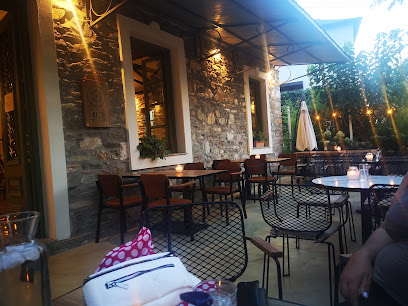
Dipnosofistis
Experience the enchanting flavors of Tsagkarada at Dipnosofistis, a unique bar and restaurant nestled in the heart of the forest.
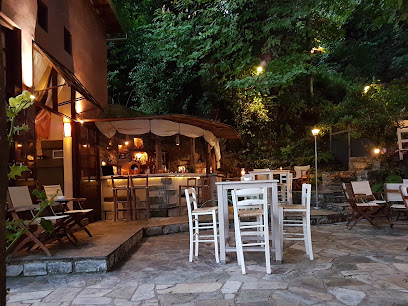
Monk Paradise Beach Bar
Discover the serene vibes of Monk Paradise Beach Bar in Zagora—where stunning views and refreshing beverages meet.
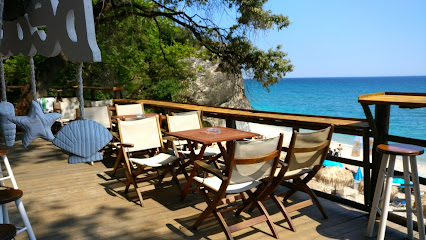
Loco Coffee Bar
Experience the vibrant atmosphere and exceptional coffee at Loco Coffee Bar in the heart of Volos, Greece.
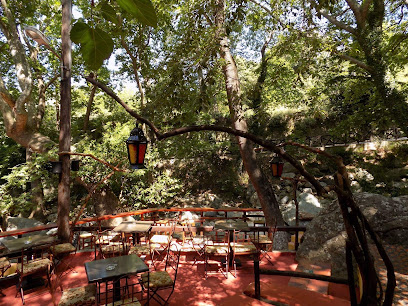
Alter Ego Rock & Blues Bar
Experience the electrifying nightlife at Alter Ego Rock & Blues Bar in Volos, where live music meets an extensive drink selection.
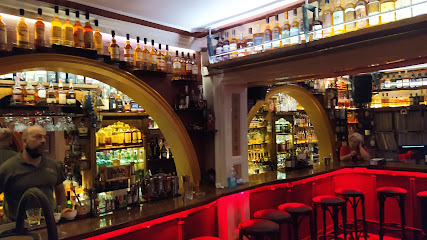
Polydroso restaurant
Experience authentic Greek cuisine in a charming setting at Polydroso Restaurant, where every dish tells a story of tradition and flavor.
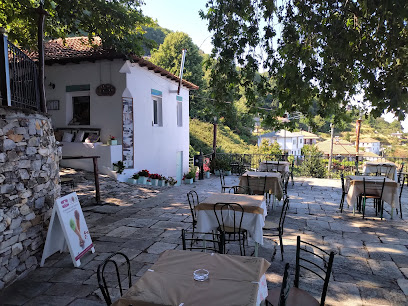
Cafe bar People
Discover the vibrant atmosphere of Cafe Bar People in Agria, where delightful drinks and a cozy ambiance await you.
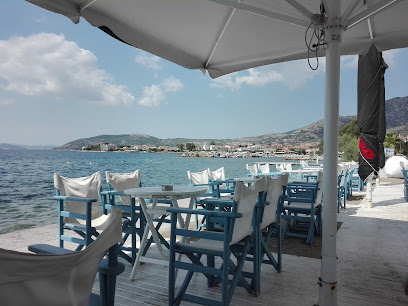
Sarande Beach Bar Restaurant
Discover the perfect blend of relaxation and flavor at Sarande Beach Bar Restaurant, Agii Saranta's coastal gem offering stunning views and delightful cuisine.
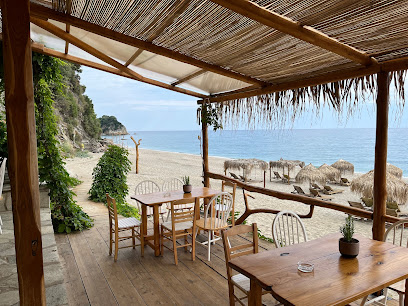
Local Phrases about Pelion
-
- HelloΓεια σας
[Yia sas] - GoodbyeΑντίο
[Adio] - YesΝαι
[Ne] - NoΌχι
[Ochi] - Please/You're welcomeΠαρακαλώ
[Parakalo] - Thank youΕυχαριστώ
[Efharisto] - Excuse me/SorryΣυγνώμη
[Signomi] - How are you?Πώς είστε;
[Pos iste?] - Fine. And you?Καλά. Εσείς;
[Kala. Esis?] - Do you speak English?Μιλάτε Αγγλικά;
[Milate Agglika?] - I don't understandΔεν καταλαβαίνω
[Den katalaveno]
- HelloΓεια σας
-
- I'd like to see the menu, pleaseΘα ήθελα να δω το μενού, παρακαλώ
[Tha ithela na do to menou, parakalo] - I don't eat meatΔεν τρώω κρέας
[Den troo kreas] - Cheers!Υγεία!
[Ygeia!] - I would like to pay, pleaseΘα ήθελα να πληρώσω, παρακαλώ
[Tha ithela na plirosa, parakalo]
- I'd like to see the menu, pleaseΘα ήθελα να δω το μενού, παρακαλώ
-
- Help!Βοήθεια!
[Voithia!] - Go away!Φύγε!
[Fiye!] - Call the Police!Καλέστε την Αστυνομία!
[Kaleste tin Astynomia!] - Call a doctor!Καλέστε ένα γιατρό!
[Kaleste ena yatro!] - I'm lostΈχω χαθεί
[Eho hathi] - I'm illΕίμαι άρρωστος
[Ime arrostos]
- Help!Βοήθεια!
-
- I'd like to buy...Θα ήθελα να αγοράσω...
[Tha ithela na agoraso...] - I'm just lookingΑπλά κοιτάω
[Apla kito] - How much is it?Πόσο κοστίζει;
[Poso kostizi?] - That's too expensiveΑυτό είναι πολύ ακριβό
[Afto ine poli akribo] - Can you lower the price?Μπορείτε να μειώσετε την τιμή;
[Boreite na miosete tin timi?]
- I'd like to buy...Θα ήθελα να αγοράσω...
-
- What time is it?Τι ώρα είναι;
[Ti ora ine?] - It's one o'clockΕίναι μία ώρα
[Ine mia ora] - Half past (10)Μισή (10)
[Misi (dekka)] - MorningΠρωί
[Proi] - AfternoonΑπόγευμα
[Apoyevma] - EveningΒράδυ
[Vradi] - YesterdayΧθες
[Hthes] - TodayΣήμερα
[Simera] - TomorrowΑύριο
[Avrio] - 1Ένα
[Ena] - 2Δύο
[Dio] - 3Τρία
[Tria] - 4Τέσσερα
[Tessera] - 5Πέντε
[Pente] - 6Έξι
[Exi] - 7Επτά
[Efta] - 8Οκτώ
[Okto] - 9Εννέα
[Ennea] - 10Δέκα
[Deka]
- What time is it?Τι ώρα είναι;
-
- Where's a/the...?Πού είναι ένας/η...
[Pou ine enas/i...] - What's the address?Ποια είναι η διεύθυνση;
[Pia ine i diefthinsi?] - Can you show me (on the map)?Μπορείτε να μου δείξετε (στο χάρτη);
[Boreite na mou dixete (sto harti)?] - When's the next (bus)?Πότε είναι το επόμενο (λεωφορείο);
[Pote ine to epomeno (leoforeio)?] - A ticket (to ....)Ένα εισιτήριο (για το...);
[Ena isitirio (gia to...)?]
- Where's a/the...?Πού είναι ένας/η...
History of Pelion
-
Pelion, also known as the 'Mountain of the Centaurs,' is steeped in Greek mythology. It is said to be the homeland of Chiron, the wisest of all centaurs and tutor to many ancient Greek heroes, including Achilles and Jason. The mountain itself is named after King Peleus, the father of Achilles. According to legend, the gods held their wedding ceremonies on Mount Pelion, further adding to its mythological significance.
-
Archaeological evidence indicates that Pelion has been inhabited since the Neolithic period. The ancient city of Iolkos, located at the foot of Mount Pelion, was a significant Mycenaean center. It is famously known as the starting point of Jason and the Argonauts' quest for the Golden Fleece. Excavations have uncovered remnants of ancient settlements, pottery, and other artifacts that shed light on the region's early history.
-
During the Byzantine period, Pelion became a center of monastic life. Numerous monasteries and churches were established, many of which still stand today, adorned with exquisite frescoes and religious icons. The region also played a crucial role during the medieval period, serving as a refuge from pirate raids and foreign invasions. The architecture from this era reflects a blend of Byzantine and local styles.
-
Pelion fell under Ottoman rule in the 15th century, a period marked by significant cultural and social changes. Despite the occupation, the people of Pelion managed to preserve their Greek identity and traditions. The mountain villages became centers of education and cultural resistance, with secret schools (Kryfo Scholio) operating to teach Greek language and history. The distinctive Pelion architecture, characterized by stone-built houses and cobbled streets, also emerged during this time.
-
Pelion played an active role in the Greek War of Independence against Ottoman rule in the early 19th century. The region's strategic location made it a focal point for revolutionary activities. Local heroes, such as Anthimos Gazis and the Milies-born scholar Rigas Feraios, were instrumental in the fight for liberation. The legacy of this period is still evident in the many monuments and memorials scattered throughout the region.
-
In the 20th century, Pelion transitioned from an agrarian society to a popular tourist destination. The region's natural beauty, combined with its rich history and cultural heritage, attracts visitors from around the world. Efforts have been made to preserve the traditional architecture and way of life, while also accommodating modern amenities. Today, Pelion is renowned for its scenic landscapes, charming villages, and vibrant festivals that celebrate its enduring cultural legacy.
Pelion Essentials
-
Pelion is located on the eastern coast of Central Greece. The nearest international airport is Nea Anchialos National Airport, about 40 kilometers from Volos, the main city near Pelion. From Volos, you can reach Pelion by car, taxi, or bus. The journey from the airport to Volos typically takes about 30 minutes by taxi or car. Buses from Volos to various villages in Pelion operate regularly and offer a scenic route through the mountainous region.
-
Public buses connect Volos with the villages of Pelion and run frequently. Renting a car is a popular option for tourists who want to explore the region at their own pace. Taxis are also available but can be more expensive. During the summer, some villages may have limited parking options. Walking and hiking are also popular ways to explore Pelion, especially the cobblestone paths connecting the villages.
-
The official currency in Greece is the Euro (EUR). Credit and debit cards are widely accepted in hotels, restaurants, and shops in Pelion. However, it is advisable to carry some cash, especially in smaller villages where card facilities might not be available. ATMs are available in Volos and the larger villages, but it is wise to withdraw sufficient cash before heading to more remote areas.
-
Pelion is generally a safe destination for tourists. However, it is advisable to take standard precautions such as avoiding isolated areas at night and keeping an eye on personal belongings in crowded places. Some of the villages have narrow, winding roads, so caution is advised when driving. There are no specific high-crime areas targeting tourists, but it is always best to stay vigilant and aware of your surroundings.
-
In case of emergency, dial 112 for immediate assistance. This is the EU-wide emergency number and connects you to police, fire, and medical services. The main hospital is in Volos, and there are smaller medical facilities and pharmacies in the larger villages of Pelion. It is recommended to have travel insurance that covers medical emergencies. For minor health issues, local pharmacies can provide over-the-counter medications.
-
Fashion: Do dress modestly when visiting religious sites. Avoid wearing revealing clothing. Religion: Do respect local customs and traditions. Always cover your shoulders and knees when entering churches and monasteries. Public Transport: Do be respectful and give up your seat to elderly passengers. Don’t eat or drink on public transport. Greetings: Do greet people with a friendly 'Kalimera' (Good morning) or 'Kalispera' (Good evening). A handshake is customary. Eating & Drinking: Do try local delicacies and accept food offerings graciously. Don’t refuse hospitality, as it is considered impolite.
-
To experience Pelion like a local, visit the traditional tavernas and try homemade tsipouro (a local spirit). Participate in local festivals, which often include music, dancing, and traditional foods. Engage with locals, who are usually friendly and willing to share stories about the region's history and culture. Don't miss the chance to hike the ancient trails connecting the villages, offering stunning views of the mountains and the Aegean Sea.
Nearby Cities to Pelion
-
Things To Do in Larissa
-
Things To Do in Lamia
-
Things To Do in Katerini
-
Things To Do in Delphi
-
Things To Do in Meteora
-
Things To Do in Thessaloniki
-
Things To Do in Athens
-
Things To Do in Patras
-
Things To Do in Serres
-
Things To Do in Ioannina
-
Things To Do in Kavala
-
Things To Do in Nafplio
-
Things To Do in Olympia
-
Things To Do in Pogradec
-
Things To Do in Gjirokastër












